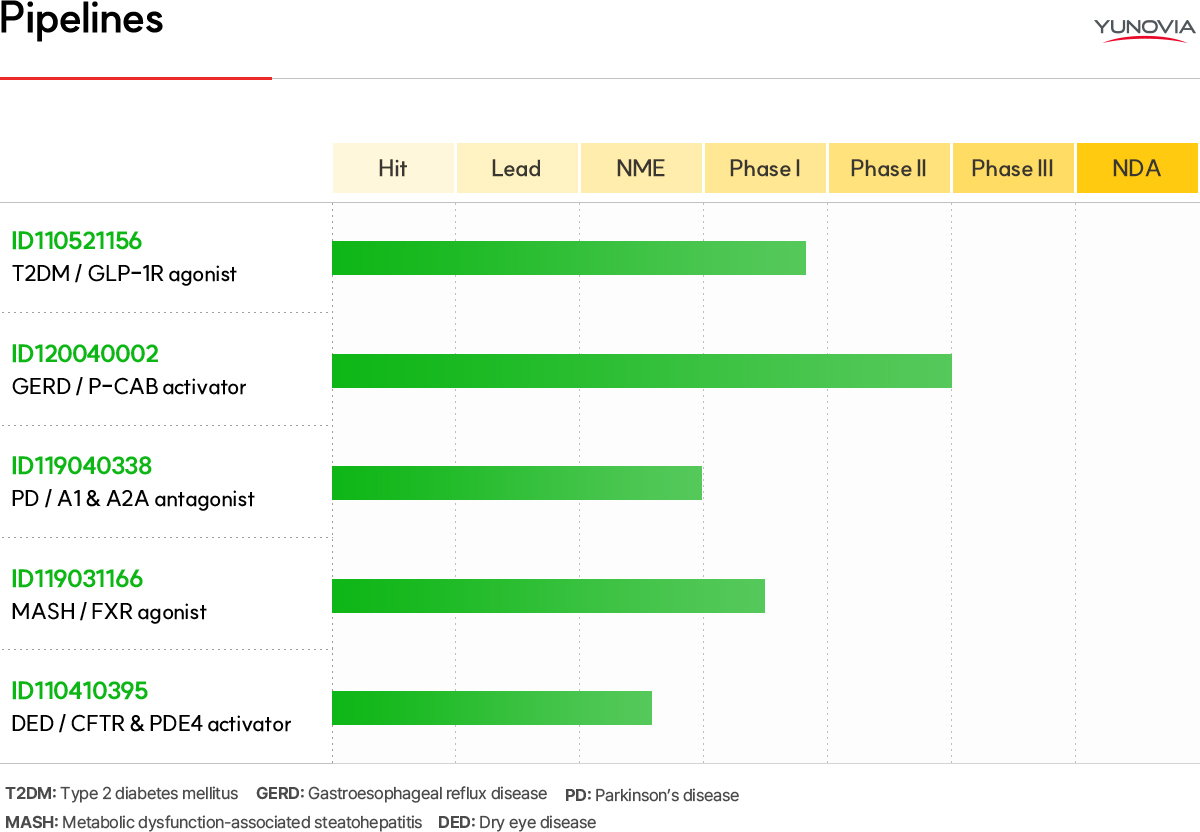
Diabetes
IDG16177 (GPR40 agonist) Type 2 diabetes mellitus treatment
Type 2 Diabetes is characterized by a high concentration of blood glucose due to insufficient insulin secretion or the impaired function of insulin. The effectiveness of diabetes drugs in lowering blood sugar diminishes over time, necessitating the addition of new treatments every 3-4 years. Unmet needs in diabetes management include finding a balance between efficacy and cardiovascular disease, minimizing the risk of hypoglycemia, ensuring ease of use, and improving tolerability.
The stimulation of the GPR40 signal triggers the activation of phospholipase C (PLC), leading to the release of intracellular calcium and the activation of protein kinase C (PKC) and protein kinase D1 (PKD1). This cascade results in an increase in insulin secretion. The approach offers advantages such as glucose-dependent insulin secretion, absence of hypoglycemic risk, proven efficacy in reducing HbA1c levels, and a positive impact on pancreatic β-cell function.
Phase 1 of the clinical trial commenced in July 2021 after receiving approval for the Clinical Trial Application (CTA) from the German Federal Medical Device Management Agency (BfArM) in June 2021. The Phase 1 clinical trial for healthy individuals included the completion of the Single Ascending Dose (SAD) Study in January 2022 and the Multiple Ascending Dose (MAD) Study in August 2022. Dosing for Phase 1 clinical trials involving patients was completed in July 2023.
Non-clinical research findings were presented at the American Diabetes Association (ADA) conferences in June 2022.
